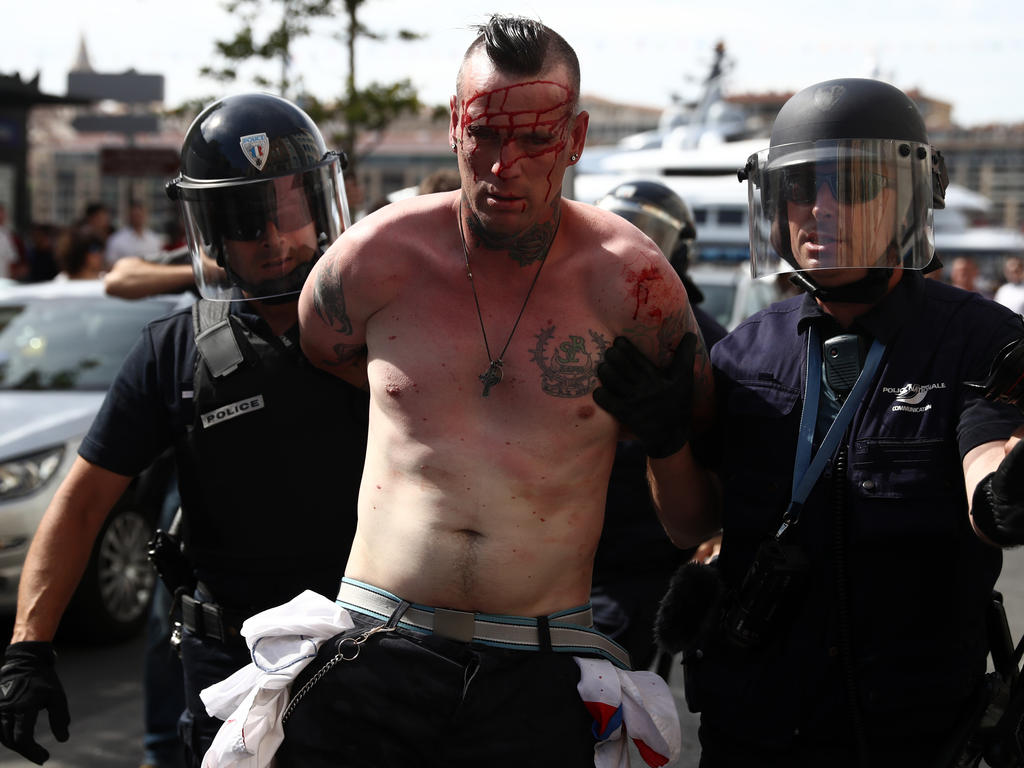Five key points on Russian hooligans and their secretive 'firms'

Five points on the origins and methods of Russia's hooligan groups which have cast a violent shadow over the European Championship football tournament in France:
Russia's secretive, highly organised football hooligan groups, known as firms, became established in the early 1990s when information about British football troublemakers became freely available after the breakup of the Soviet Union.
"There were no firms until the early 1990s, it was totally lifted from English football hooligans. They tried to copy them," said Vladimir Kozlov, a Moscow-based author of a book and a documentary aired on Russian television about hooligans.
There is a hierarchy of firms with CSKA Moscow's group, "Yaroslavka", particularly renowned but only insiders know the current rankings, Kozlov said.
They come from ordinary jobs and have families. But Russian hooligans are often combat sport fanatics who believe they are fitter than counterparts in countries like England.
"We don't drink and we train, while they drink and don't train," said Denis, a 32-year-old hooligan currently in France. "At some point our paths cross and what hope do they have?"
"Fans or hooligans from Russia are mainly younger, aged 20-30," said Vladimir, a 30-year-old PR manager in Moscow who did not want to give his surname.
"Most of them are sportsmen who do sports like boxing or all kinds of martial arts."
Kozlov estimated there are a relatively small number of hard-core "ultra" hooligans.
"I think there are maybe a few hundred active football hooligans -- maybe a few thousand at most."
Not all the Russians fighting in France were necessarily in a firm but some appeared to be, Kozlov said.
"There are people dressed in near-identical T-shirts and who look as if they have been doing some sport," he said.
"There have been eye-witness reports of people who also looked very organised. I think those are members of hooligan firms."
The contrast with England fans was marked in France, said John Williams, a senior lecturer in sociology at Leicester University who studies football hooliganism.
"The reporting from France suggests drunken, jingoistic English fans confronted by sober, highly organised Russian ultras," he said.
Denis, one of the Russians in France, called Euro 2016 "a real holiday, a chance to cross swords with fighters from all of Europe."
The difference between hooligans and ordinary fans can be "blurred," Kozlov said, but the 'firms' are primarily concerned with rivalry with other hooligan groups.
Hooligans concentrate on "fights with members of other hooligan firms who are basically their enemies," Kozlov said.
Denis admitted that for him, "football is secondary. I see this sport as unentertaining and uninteresting."
Fights with other national groups are "a question of honour and testing our strength and ability to organise and fight," he said.
When Russian hooligans from different firms travel abroad, they unite, said Vladimir, who supports Lokomotiv Moscow.
"About 150 Russian guys, the strongest ones" flew to France specifically to fight the English, he said.
Vladimir said Russian hooligans follow a strict code, fighting with fists only.
"Some members of these firms say they do nothing but fair fist fights... In practice they use whatever they can get," said Kozlov.
Hooligans philosphy "is probably the most primitive thing," Kozlov said: "These are our people and those are not our people, so they are enemies."
Trouble in stadiums including racist abuse and fights rarely "face severe consequences," Kozlov lamented.
That looks set to change as Russia hosts the 2018 World Cup, a prestige project backed by President Vladimir Putin.
Williams said he expected Russian authorities to "come down very hard at home on domestic hooligans, both before and, if necessary, during the finals."





